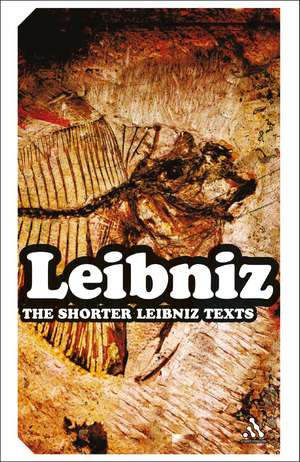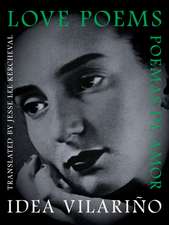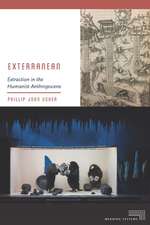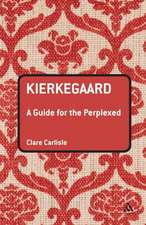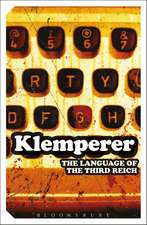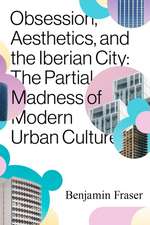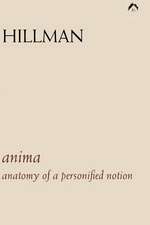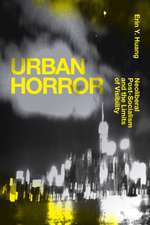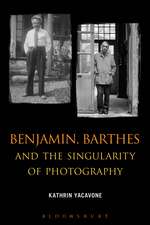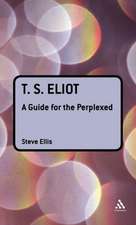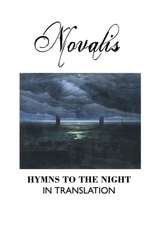The Shorter Leibniz Texts: A Collection of New Translations: Continuum Impacts
Traducere de Dr Lloyd Stricklanden Limba Engleză Paperback – 14 oct 2006
| Toate formatele și edițiile | Preț | Express |
|---|---|---|
| Paperback (1) | 188.82 lei 6-8 săpt. | |
| Bloomsbury Publishing – 14 oct 2006 | 188.82 lei 6-8 săpt. | |
| Hardback (1) | 770.68 lei 6-8 săpt. | |
| Bloomsbury Publishing – 14 oct 2006 | 770.68 lei 6-8 săpt. |
Din seria Continuum Impacts
-
 Preț: 310.42 lei
Preț: 310.42 lei - 40%
 Preț: 104.54 lei
Preț: 104.54 lei - 11%
 Preț: 220.02 lei
Preț: 220.02 lei -
 Preț: 226.26 lei
Preț: 226.26 lei - 36%
 Preț: 293.34 lei
Preț: 293.34 lei - 40%
 Preț: 108.69 lei
Preț: 108.69 lei - 42%
 Preț: 159.42 lei
Preț: 159.42 lei - 40%
 Preț: 131.99 lei
Preț: 131.99 lei - 40%
 Preț: 118.58 lei
Preț: 118.58 lei - 39%
 Preț: 93.56 lei
Preț: 93.56 lei - 40%
 Preț: 293.71 lei
Preț: 293.71 lei - 44%
 Preț: 122.26 lei
Preț: 122.26 lei - 40%
 Preț: 114.79 lei
Preț: 114.79 lei - 36%
 Preț: 184.88 lei
Preț: 184.88 lei - 41%
 Preț: 89.87 lei
Preț: 89.87 lei - 40%
 Preț: 123.69 lei
Preț: 123.69 lei - 14%
 Preț: 151.38 lei
Preț: 151.38 lei - 38%
 Preț: 178.70 lei
Preț: 178.70 lei - 41%
 Preț: 189.08 lei
Preț: 189.08 lei - 41%
 Preț: 116.43 lei
Preț: 116.43 lei - 41%
 Preț: 183.89 lei
Preț: 183.89 lei - 40%
 Preț: 117.51 lei
Preț: 117.51 lei - 44%
 Preț: 131.99 lei
Preț: 131.99 lei - 35%
 Preț: 138.79 lei
Preț: 138.79 lei - 39%
 Preț: 139.77 lei
Preț: 139.77 lei - 41%
 Preț: 1079.83 lei
Preț: 1079.83 lei - 39%
 Preț: 122.23 lei
Preț: 122.23 lei - 23%
 Preț: 221.18 lei
Preț: 221.18 lei - 40%
 Preț: 122.81 lei
Preț: 122.81 lei - 41%
 Preț: 103.20 lei
Preț: 103.20 lei - 40%
 Preț: 100.66 lei
Preț: 100.66 lei - 33%
 Preț: 165.72 lei
Preț: 165.72 lei - 14%
 Preț: 190.96 lei
Preț: 190.96 lei - 40%
 Preț: 108.60 lei
Preț: 108.60 lei - 40%
 Preț: 100.13 lei
Preț: 100.13 lei - 43%
 Preț: 115.23 lei
Preț: 115.23 lei - 40%
 Preț: 110.29 lei
Preț: 110.29 lei - 41%
 Preț: 89.96 lei
Preț: 89.96 lei - 44%
 Preț: 109.03 lei
Preț: 109.03 lei - 39%
 Preț: 121.60 lei
Preț: 121.60 lei - 40%
 Preț: 118.65 lei
Preț: 118.65 lei - 36%
 Preț: 155.17 lei
Preț: 155.17 lei - 38%
 Preț: 183.40 lei
Preț: 183.40 lei - 43%
 Preț: 130.11 lei
Preț: 130.11 lei
Preț: 188.82 lei
Preț vechi: 220.69 lei
-14% Nou
Puncte Express: 283
Preț estimativ în valută:
36.13€ • 39.24$ • 30.35£
36.13€ • 39.24$ • 30.35£
Carte tipărită la comandă
Livrare economică 22 aprilie-06 mai
Preluare comenzi: 021 569.72.76
Specificații
ISBN-13: 9780826489517
ISBN-10: 0826489516
Pagini: 208
Ilustrații: black & white illustrations
Dimensiuni: 129 x 198 x 19 mm
Greutate: 0.21 kg
Editura: Bloomsbury Publishing
Colecția Continuum
Seria Continuum Impacts
Locul publicării:London, United Kingdom
ISBN-10: 0826489516
Pagini: 208
Ilustrații: black & white illustrations
Dimensiuni: 129 x 198 x 19 mm
Greutate: 0.21 kg
Editura: Bloomsbury Publishing
Colecția Continuum
Seria Continuum Impacts
Locul publicării:London, United Kingdom
Caracteristici
Includes 60+ new translations of Leibniz's shorter philosophical writings
Cuprins
Acknowledgements
Bibliography
Introduction
A note on the translations
Part I. Metaphysics
Bibliography
Introduction
A note on the translations
Part I. Metaphysics
A. Creation
1. On first truths (middle - end 1680)
1. On first truths (middle - end 1680)
2. On the reason why these things exist rather than other things (March - August 1689)
3. On the ultimate origination of things (23 November 1697)4. Letter to Johann Christian Schulenburg (29 March 1698)
3. On the ultimate origination of things (23 November 1697)4. Letter to Johann Christian Schulenburg (29 March 1698)
5. Letter to André Morell (4/14 May 1698)
B. Truth and Substance
1. On the perfect concept of substances (1677?)
2. The principle of human knowledge (winter 1685/1686?)
3. Remarks on Mr Arnauld's letter concerning my proposition: that the individual concept of each person includes once and for all everything that will ever happen to him (May 1686)
4. Letter to Antoine Arnauld (4/14 July 1686)
5. Logical-metaphysical principles (spring - autumn 1689?)
1. On the perfect concept of substances (1677?)
2. The principle of human knowledge (winter 1685/1686?)
3. Remarks on Mr Arnauld's letter concerning my proposition: that the individual concept of each person includes once and for all everything that will ever happen to him (May 1686)
4. Letter to Antoine Arnauld (4/14 July 1686)
5. Logical-metaphysical principles (spring - autumn 1689?)
6. On body and substance truly one (March 1690)
7. Letter to Pierre Dangicourt (1716)
Part II: Mind, Body and Soul
A. Souls and their nature
1. Difficulties concerning the nature and origin of souls (summer 1683 - winter 1684/1685)
1. Difficulties concerning the nature and origin of souls (summer 1683 - winter 1684/1685)
2. Souls are either created every day or are coeval with the world (summer 1683 - winter 1684/1685)
3. On the creation of souls and the origin of minds (summer 1683 - winter 1684/1685)
4. On the souls of men and beasts (1710)
3. On the creation of souls and the origin of minds (summer 1683 - winter 1684/1685)
4. On the souls of men and beasts (1710)
B. The relationship between soul and body
1. On the system of occasional causes (March 1689 - March 1690?)
1. On the system of occasional causes (March 1689 - March 1690?)
2. New system of the nature of the communication of substances, as well as the union that exists between the soul and the body (27 June 1695)
3. Explanation of New System (3 January 1696)
C. The fate of souls
1. Letter to Electress Sophie (4 November 1696)
2. Letter to Electress Sophie (6 February 1706)
1. Letter to Electress Sophie (4 November 1696)
2. Letter to Electress Sophie (6 February 1706)
Part III. Free Will and Necessity
A. The nature of free will
1. On free will (summer 1678 - winter 1680/1?)
1. On free will (summer 1678 - winter 1680/1?)
2. On freedom and spontaneity (after 1690)
3. Conversation about freedom and fate (1699 - 1703)
B. Contingency and necessity
1. Middle knowledge (November 1677)
2. On freedom from necessity in choosing (summer 1680 - summer 1684)
3. A note on freedom and necessity (1680-4)
4. On contingency (spring - autumn 1689)
5. Notes on Pierre Bayle's Reply to the Questions from a Provincial (1706)
1. Middle knowledge (November 1677)
2. On freedom from necessity in choosing (summer 1680 - summer 1684)
3. A note on freedom and necessity (1680-4)
4. On contingency (spring - autumn 1689)
5. Notes on Pierre Bayle's Reply to the Questions from a Provincial (1706)
Part IV: Science
A. Matter and body
1. Demonstration against atoms taken from the contact of atoms (23-4 October 1690)
2. Whether the essence of body consists in extension (18 June 1691)
1. Demonstration against atoms taken from the contact of atoms (23-4 October 1690)
2. Whether the essence of body consists in extension (18 June 1691)
3. Letter to Johann Bernoulli (August - September 1698)
4. Letter to Thomas Burnett (1699)
5. Letter to Burcher de Volder (24 March/3 April 1699)
6. Letter to Burcher de Volder (30 June 1704)
4. Letter to Thomas Burnett (1699)
5. Letter to Burcher de Volder (24 March/3 April 1699)
6. Letter to Burcher de Volder (30 June 1704)
B. The laws of nature
1. On a general principle useful in explaining the laws of nature through a consideration of the divine wisdom (1687)
2. Letter to Pierre Bayle (1702)
3. Letter to Bernard le Bovier de Fontenelle (7 April 1703)
1. On a general principle useful in explaining the laws of nature through a consideration of the divine wisdom (1687)
2. Letter to Pierre Bayle (1702)
3. Letter to Bernard le Bovier de Fontenelle (7 April 1703)
C. Biology
1. On the origin of fossils (early 1680s?)
2. Protogaea (selections) (1690-1)
3. Letter from G. W. Leibniz (1710)
1. On the origin of fossils (early 1680s?)
2. Protogaea (selections) (1690-1)
3. Letter from G. W. Leibniz (1710)
Part V. Law and Ethics
A. Law
1. Preface to the Diplomatic Code of People's Rights (1693)2. On the death penalty (after 10 July 1697)
3. Expiation (1707-10)
1. Preface to the Diplomatic Code of People's Rights (1693)2. On the death penalty (after 10 July 1697)
3. Expiation (1707-10)
B. Virtue
1. On generosity (1686-7)
1. On generosity (1686-7)
2. Letter to Electress Sophie (mid-August (?) 1697)
3. Definitions (1701-5?)
4. The true piety (before 1710?)
C. Pleasure and happiness
1. On the happy life (spring - autumn 1676)
1. On the happy life (spring - autumn 1676)
2. Happiness (1694-8)
3. A dialogue (after 1695?)
VI. Theology
A. The existence of God
1. On the reality of truth (August 1677)
2. On necessary or eternal truths (August 1677)
1. On the reality of truth (August 1677)
2. On necessary or eternal truths (August 1677)
3. A proof of the existence of God from his essence (January 1678)
4. Letter to the editor of the Journal de Trévoux (1701)
4. Letter to the editor of the Journal de Trévoux (1701)
B. Optimism and meliorism
1. The elements of true piety (early 1677 - early 1678?)
2. On the continuous increase in the perfection of the world (March 1689 - March 1690?)
3. Whether the world increases in perfection (1694-6?)
4. Letter to André Morell (29 September 1698)
1. The elements of true piety (early 1677 - early 1678?)
2. On the continuous increase in the perfection of the world (March 1689 - March 1690?)
3. Whether the world increases in perfection (1694-6?)
4. Letter to André Morell (29 September 1698)
5. Letter to Louis Bourguet (5 August 1715)
6. Letter to Louis Bourguet (mid-to-late March 1716)
7. Letter to Louis Bourguet (3 April 1716)
8. Letter to Louis Bourguet (2 July 1716)
6. Letter to Louis Bourguet (mid-to-late March 1716)
7. Letter to Louis Bourguet (3 April 1716)
8. Letter to Louis Bourguet (2 July 1716)
C. Sin and evil
1. On sin and original sin (April - October 1686?)
2. Can the bad outcomes of wicked actions be ascribed to wickedness? (1696-7)
3. Letter to Isaac Jacquelot (6 October 1706)
1. On sin and original sin (April - October 1686?)
2. Can the bad outcomes of wicked actions be ascribed to wickedness? (1696-7)
3. Letter to Isaac Jacquelot (6 October 1706)
4. Letter to Louis Bourguet (late 1712)
Index
Index
Recenzii
"A volume of Leibniz translations by Lloyd Strickland, The Shorter Leibniz Texts was very welcome. Strickland can render Leibniz clearly in a prose which enables, rather than steadies, the dizzying effects of Leibniz's different concepts as they encompass infinity. Many of the pieces - On The Death Penalty, On The Happy Life, to choose two - have not appeared in English before. Check out Strickland's peerless website for many other short translations published online." www.readysteadybook.com
"The introduction is a clear, informative guide to the organization of the Leibniz short texts that follow. The rest of the book consists of those texts, a translated collection of letters, and notes spanning Leibniz's life. They are particularly useful because this important thinker did not provide a book that covers his vast interests or a systematic philosophical position. The Shorter Leibniz Texts provides a most valuable contribution for Leibniz scholars." Summing Up: Highly Recommended.
'Strickland's excellent collection not only provides a highly accessible entry point to students approaching Leibniz for the first time, but also constitutes a significant contribution to Leibniz scholarship; the selections are fresh and interesting, and succeed in revealing the breadth and depth of Leibniz's philosophy.' Vernon Pratt, Senior Lecturer in Philosophy, Lancaster University
'Since no one or two of Leibniz's works capture the breadth of his thought, Strickland's anthology is a happy solution and fills a neglected niche in hitherto published anthologies.' Daniel J. Cook, Professor Emeritus of Philosophy, Brooklyn College, CUNY
This book first presents a 55-page introduction by Strickland (Lancaster Univ., UK), a recognized scholar on Leibniz. The introduction is a clear, informative guide to the organization of the Leibniz short texts that follow. The rest of the book consists of those texts, a translated collection of letters, and notes spanning Leibniz's life. They are particularly useful because this important thinker did not provide a book that covers his vast interests or a systematic philosophical position. The closest articulation of that position is New Essays on Human Understanding, written in 1704 but not published until 1765. Strickland organizes the book's topics as follows: "Metaphysics," "Mind, Body and Soul," "Free Will and Necessity," "Science," "Law and Ethics," and "Theology." Strickland posts English translations of works by Leibniz (including some previously untranslated ones) on his Web site Leibniz Translations.com (http://www.leibniz-translations.com/). The Shorter Leibniz Texts provides a most valuable contribution for Leibniz scholars. Summing Up: Highly recommended. Upper-level undergraduates through faculty/researchers.
"The introduction is a clear, informative guide to the organization of the Leibniz short texts that follow. The rest of the book consists of those texts, a translated collection of letters, and notes spanning Leibniz's life. They are particularly useful because this important thinker did not provide a book that covers his vast interests or a systematic philosophical position. The Shorter Leibniz Texts provides a most valuable contribution for Leibniz scholars." Summing Up: Highly Recommended.
'Strickland's excellent collection not only provides a highly accessible entry point to students approaching Leibniz for the first time, but also constitutes a significant contribution to Leibniz scholarship; the selections are fresh and interesting, and succeed in revealing the breadth and depth of Leibniz's philosophy.' Vernon Pratt, Senior Lecturer in Philosophy, Lancaster University
'Since no one or two of Leibniz's works capture the breadth of his thought, Strickland's anthology is a happy solution and fills a neglected niche in hitherto published anthologies.' Daniel J. Cook, Professor Emeritus of Philosophy, Brooklyn College, CUNY
This book first presents a 55-page introduction by Strickland (Lancaster Univ., UK), a recognized scholar on Leibniz. The introduction is a clear, informative guide to the organization of the Leibniz short texts that follow. The rest of the book consists of those texts, a translated collection of letters, and notes spanning Leibniz's life. They are particularly useful because this important thinker did not provide a book that covers his vast interests or a systematic philosophical position. The closest articulation of that position is New Essays on Human Understanding, written in 1704 but not published until 1765. Strickland organizes the book's topics as follows: "Metaphysics," "Mind, Body and Soul," "Free Will and Necessity," "Science," "Law and Ethics," and "Theology." Strickland posts English translations of works by Leibniz (including some previously untranslated ones) on his Web site Leibniz Translations.com (http://www.leibniz-translations.com/). The Shorter Leibniz Texts provides a most valuable contribution for Leibniz scholars. Summing Up: Highly recommended. Upper-level undergraduates through faculty/researchers.
Descriere
Contains more than 60 original translations of papers written by the German philosopher Gottfried Wilhelm Leibniz (1646-1716). By focusing on Leibniz's shorter philosophical writings rather than his lengthy and/or impenetrable pieces, this volume aims to be more 'student friendly' than rival anthologies of Leibniz's work.
